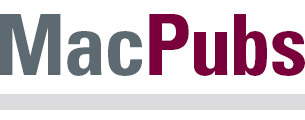Featured Stories
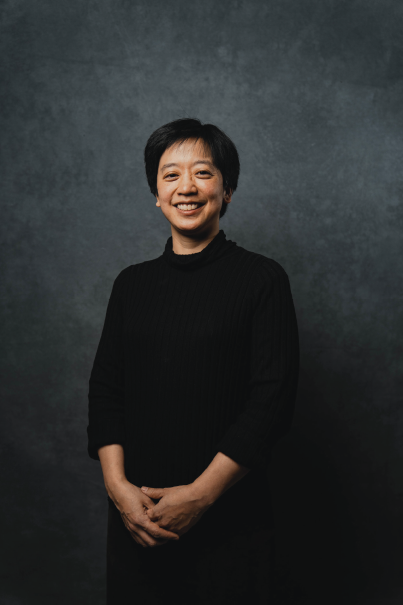
The pandemic forced an overnight pivot to virtual learning. Faculty members like Megumi Harada were quick to adapt, pouring their heart and soul into finding new ways to engage and educate students online with help from McMaster’s MacPherson Institute. The result was an even stronger connection with students.
Following the COVID-19 outbreak in March 2020, instructors at the Faculty of Science anticipated teaching remotely for no more than a week or two. As weeks stretched into months and years, they invented ways to keep their students feeling engaged and supported online.
Megumi Harada, Professor and Canada Research Chair (Tier 2) in the Department of Mathematics and Statistics, was one of many who found the prospect daunting.
“I’m very much an in-person kind of person, and I’ve never been great with technology,” she says. “The whole idea of teaching online had me shaking in my boots.”
The winner of a McMaster Students Union teaching award, Megumi is known for her devotion to her students. Her students’ first assignment is always the same: on a single sheet of paper, share a personal story and attach a photo. By the first midterm, she has memorized them all.
“It’s a way of humanizing each student instead of letting them remain anonymous,” she explains. “The worst thing about the pandemic is that I can’t match names and faces in the same way over Zoom.”
When she realized remote learning was not about to end, Megumi poured her “heart and soul” into learning best practices for teaching first-year calculus. Her first move was to hold an online drop-in event two evenings a week. “Many students took advantage of it. I could tell they really appreciated the effort,” she says. She went on to adapt course content and format to individual student needs for learning online. In response to student feedback on a mid-semester questionnaire, she scrapped some unpopular assignments and reworked tests and exams.
A key role was also played by the Paul R. MacPherson Institute for Leadership, Innovation and Excellence in Teaching, a campus-wide resource dedicated to helping everyone achieve the exceptional teaching of instructors like Megumi. From graduate students learning to be effective teaching assistants to tenured professors wanting to keep their methods sharp, anyone can find a course, workshop or module that improves their teaching practice.
By investing in these future faculty members now, we equip them to motivate and inspire future generations of students.
“Everything we do is geared toward helping teachers engage and assess their students,” says Kris Knorr, an educational developer at the Institute. Topics include creating a course syllabus, building exams that assess real-world knowledge, and leveraging technology to enhance the student experience.
Throughout the pandemic, Kris has marveled at the willingness of instructors in the Faculty of Science to master the art of remote teaching. “They have stepped up to the plate to teach in a way that they never signed up for,” he reflects.
In the early stages of the pandemic, the Institute focused on creating workshops and resources to help instructors choose and navigate the best platform for their classes. The focus has since shifted to developing and sharing best practices that help build stronger connections with students. “It’s become apparent that remote teaching is here to stay, so we have incorporated effective practices for remote teaching into all our programs instead of treating it like a separate topic,” says Kris.
The McCall MacBain Postdoctoral Fellows Teaching and Leadership Program shares the MacPherson Institute’s aim to nurture excellence in teaching. “Postdoctoral fellows are set up to fail when they are hired as faculty members if they’ve never received any teaching instruction,” says Constance Imbault, Program Manager & Research Coordinator for the program. “Our program exists to set them and their future students up for success.”
The 2021-22 class includes 10 postdoctoral fellows, five of which hail from the Faculty of Science. For eight months, the fellows develop their instructional skills in several ways. To build a solid theoretical foundation for learning, they read and present research papers on education cognition. They then apply what they have learned by designing syllabi, lectures and curricula in a series of workshops — all virtually.
“By investing in these future faculty members now, we equip them to motivate and inspire future generations of students,” says Constance. “This mission is more than worth our while.”
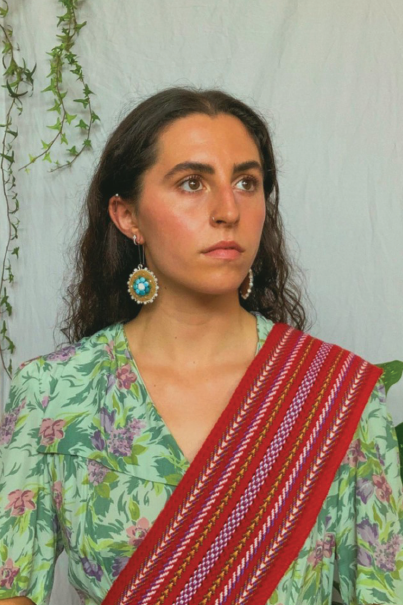
Students played an integral role in developing the Faculty of Science’s five-year strategic plan. A team of students were then recruited by the Dean’s Office to help implement that plan. It’s a partnership that delivers on the Faculty of Science’s promise to be student-centred and welcoming for all.
In December 2020, the Faculty of Science unveiled a bold plan to chart the next five years. The plan had a clear vision for the future – transform our world through science.
The plan was built through extensive consultations. Special attention was paid to the insights and aspirations of students – the next generation of scientists who’ll transform our world.
The students’ work didn’t stop there. They’re now directly involved in bringing that five-year plan to life.
Ten undergraduate students were recruited to work on the Strategic Plan Project Team. Their assignment? Implement key parts of the plan and do that work from the perspective of students. Starting in May 2021, they began turning high-level objectives into six major projects, each with its own set of goals and metrics.
“Western science is typically categorical, breaking everything down into its component parts, while Indigenous science focuses on the interconnectedness of bodies and systems. The two worldviews are complementary.”
While it will take time and sustained effort to put this framework into action, Sage was encouraged by the advisory board’s positive response to her team’s ideas.
“We told the team to imagine that the initiatives in our strategic plan were like balloons that had filled an entire auditorium,” says Maggie. “The students’ job was to reach up and pull down the balloons they were most passionate about and then come up with specific ways of making those ideas a reality.”
“We knew that directly involving students in the work of implementing our strategic plan would take us somewhere amazing,” says Debbie Marinoff Shupe, Manager of Strategic Initiatives & Special Projects in the Dean’s Office. Debbie supervised the student group with her colleague and project coordinator Maggie Cockburn.
Sage Hartmann, a fifth-year Indigenous student majoring in psychology, neuroscience and behavior (PNB), was the ideal candidate to lead the first project. It involved developing a framework for advancing and incorporating Indigenous knowledge, wisdom and culture into the Faculty of Science curriculum.
“As students, it can sometimes feel like we’re yelling into a void,” says Sage. “What appealed to me about joining the project team was the opportunity not only to voice my concerns but to have those opinions validated and transformed into action.”
Over the course of 2021, Sage led her team in developing and presenting a comprehensive framework to the Dean’s Advisory Board. From closing gaps in admissions and advancing mentorship programs to integrating Indigenous ideas into curricula, the framework takes a holistic approach to making the Faculty more accessible and inclusive.
“In Western science, there is typically no representation or celebration of Indigenous success or Indigenous Ways of Knowing and Being,” says Sage. But those who dismiss Indigenous Science receive an incomplete education, she believes.
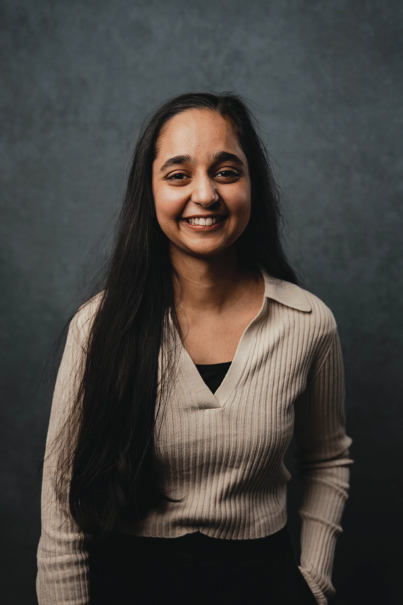
For her first project, Simran Dhami, a second-year biology and PNB student, undertook the task of creating a comprehensive resource list for students in the Faculty.
“As a first-year student, I felt like there were a lot of resources available to students, but they weren’t necessarily promoted well,” she says. Thanks to her, science students will soon be able to filter a resource list by category to meet a wide range of academic, professional and personal needs.
Simran also worked with the Science Career and Cooperative Education Office (SCCE) on a project that will expand the realm of possibility for a diverse pool of co-op candidates, especially those who fell slightly short of the historic grade point average threshold because of unique circumstances. The result is a new co-op application process that includes an optional supplementary application for students to share more about their background.
“As a student from a visible minority, I really connected with the Faculty’s efforts to advance equity, diversity and inclusion principles,” says Simran. “We had the opportunity to achieve something concrete through projects like the co-op application.”
Rodrigo Narro Pérez is a postdoctoral fellow who guides and facilitates various equity and anti-racism initiatives within the Faculty of Science and Provost’s Office. “I’m heartened by all the students driving change,” Rodrigo says. “They recognized the need to embed equity, diversity and inclusion principles into every part of the strategic plan and not just treat it like a box to check.”
While Sage, Simran and the other members of the Strategic Plan Project Team have made great strides in the past year, there is still work to be done. “There are excellent ideas sitting on the shelf that didn’t make the cut this year but will be revisited in the years ahead,” says Maggie.
While the team tackles new ideas, the Faculty of Science will implement existing ideas in a way that advances equity, diversity and inclusion for everyone. “The strategic plan is aspirational in some ways, but it’s also a contract with, and a promise to, our students,” says Debbie. “With the help of our student team, we’ll continue working toward creating the best possible environment for advancing scientific learning and discovery.”
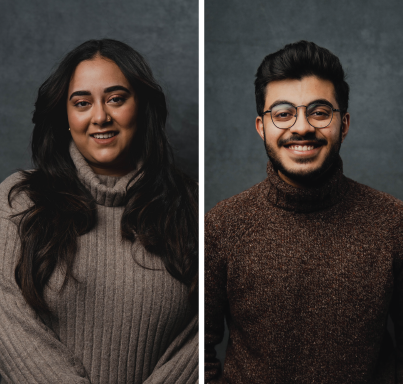
All of us want to feel like we belong. That need for community among students was never more important, or more put to the test, than during the pandemic. Three student-led groups went above and beyond in serving, supporting and bringing together more than 9,000 undergraduate and graduate students in the Faculty of Science.
Everyone needs to feel like they’re part of something bigger than themselves. At the Faculty of Science, student-led organizations offer a vital lifeline of connection for classmates who want to make the most of their university experience.
Although the isolation of the COVID-19 pandemic and the move to a virtual campus tested and frayed those ties in 2021, student leaders managed to do more than hold their organizations together throughout the year. Across the board, they successfully found new ways to deliver essential services while also creating new opportunities for their fellow students to connect online.
Rhea Desai is student president of the Science Graduate Students Association (SciGSA), which works to break down siloes within the Faculty of Science by hosting social and professional events for graduate students from diverse fields. She earned her bachelor’s degree in biology at McMaster and has been enrolled in a postdoctoral biology program since 2018.
“I felt isolated in my first year of graduate school,” she remembers. “There’s always so much happening for undergraduate students, but graduate students have to look a little harder for social activities.” She joined SciGSA to help students like her feel less alone.
Stefania Cerisano and Julie Bannon, both PhD candidates in psychology, neuroscience and behavior, found the community they were searching for in the Women in Science & Engineering Initiative (WISE). Over time, they found so much value in the organization’s mission to support and advocate for diversity and equity at the Faculty of Science that they became co-presidents.
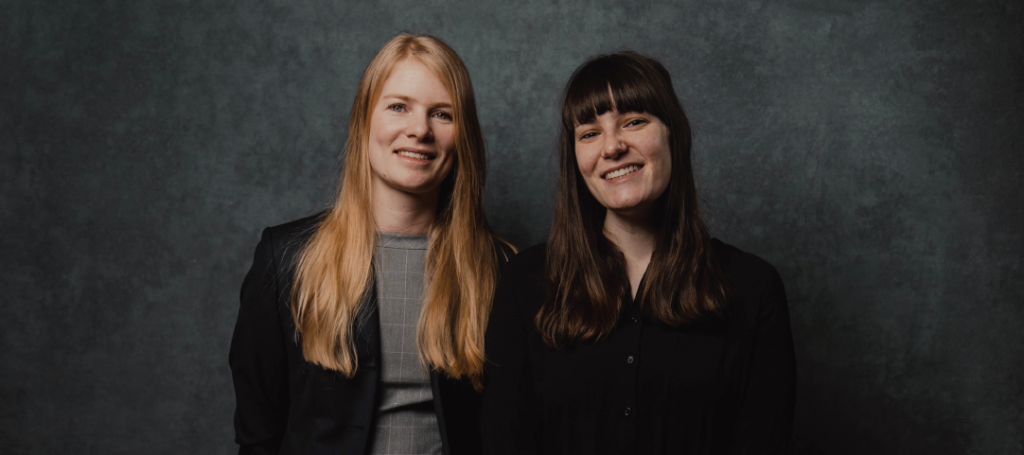
At the undergraduate level, fourth-year student Sahil Karnani leads the McMaster Science Society (MSS). It’s a student-run organization that improves the university experience through a wide range of activities, from tutoring and webinars to social events like the annual Formaldehyde formal that sells out as fast as a Harry Styles concert.
In 2021, the unpredictability of the COVID-19 pandemic made it challenging for student leaders to maintain morale among their ranks. “People were excited to attend virtual events at the beginning of the pandemic, but by the second year, everyone was tired and stressed out,” says Rhea. “Being part of a student organization wasn’t on the front burner for them anymore.”
Sahil, Stefania and Julie echo Rhea’s thoughts, pointing to the ongoing reality of Zoom fatigue for students who spend most of their days attending classes from a screen.
Fortunately, these student leaders persevered. “Nothing about leading this year has been straightforward or easy,” says Dean Maureen McDonald. “Yet I’ve been so impressed with their continued dedication to making our Faculty of Science even better for all students.”
Before the pandemic, SciGSI hosted an annual spring event that invites alumni to speak on a panel about their industry experiences. It’s also a valuable networking opportunity that highlights careers beyond academia. While Rhea and her team converted the event to a virtual space with some trepidation, they found unexpected value in the new format. “It gave us the opportunity to invite alumni who wouldn’t have been able to attend in person,” she says. “That was a silver lining for a lot of the virtual talks and seminars we have hosted recently.”
Julie and Stefania have experienced the same unexpected benefit from moving WISE mentoring events online.
“We have a dedicated team that is focused on providing support and mentorship opportunities to the McMaster graduate community,” says Julie. “Our team members have worked hard during the pandemic to continue our monthly talks from inspiring mentors in STEM while also expanding our mentorship program.”
Sahil says the dean and her leadership team in the Faculty have been a “saving grace” throughout the pandemic. “One of the things that I have had to learn as a leader is how to effectively prioritize student needs,” he says. “The Faculty provided the guidance my team needed to get through this year.”
While Sahil and his team continue to invest hundreds of hours in planning and running successful events, they also spent the past year preventing students from falling behind both academically and financially. As the demand for tutoring spiked duringCovid, they devoted more resources to recruiting tutors. They also created new scholarships to provide a fresh source of funding to recognize students with outstanding character or achievements.
“Leading during a pandemic has been a roller coaster,” says Sahil, “but we will continue to do everything we can to help the McMaster Science Society become even stronger and more connected than it was before.”
Engaged and committed – Students made the difference
Science Graduate Students Association (SciGSA):
- Going virtual: Successfully converted its annual Alumni Social into a virtual event. Event organizers invited alumni panelists who would not have been able to travel and attend in person.
- EDI advocacy: Engaged in various conversations on campus and with the Dean’s Office on equity, diversity and inclusion (EDI) issues that impact graduate students and post-doctoral fellows. To advance these efforts, SciGSA hosted a “Let’s Talk About Science & Race” session with the Race, Racialization and Racism Working Group of the President’s Advisory Committee on Building an Inclusive Community and held its first annual general meeting focused on understanding and vocalizing ongoing EDI struggles.
- Shining a spotlight on Indigeneity: Hosted a talk with Chief Stacey Laforme from the Mississaugas of the Credit First Nation.
Women in Science & Engineering Initiative:
- Mentor of the Month talks: Brought in several community members to speak about their experiences working in science, technology, engineering and mathematics (STEM). Common themes addressed included transitioning between academia and industry, following non-traditional career paths, and the role that quality mentors and networks play in supporting career goals.
- Generation STEM: Teamed up with other groups in the McMaster and Hamilton communities to host a variety of STEM-related workshops, panels and lab tours for local high students.
- Current Research in Engineering, Science and Technology (CREST): Last year’s annual CREST conference included a keynote talk by the Honourable Kirsty, Deputy House Leader of the Government, plus workshops on open science, gender inclusivity and professional development as well as academia and industry panels.
McMaster Science Society:
- Tutoring and Mentorship: Offered tutoring and mentorship services to all first-year students in the Faculty of Science in 2021.
- Formaldehyde: Hosted a virtual version of the biggest student society formal night on campus in 2021 and planning an in-person this year.
- MSS Scholarships: Established a slate of new scholarships for students, recognizing individual achievement and character.
- Social Media Overhaul: A major marketing overhaul featuring Discord Servers, a newly designed website (macsci.ca) and a new promotions campaign expanded the organization’s digital presence.
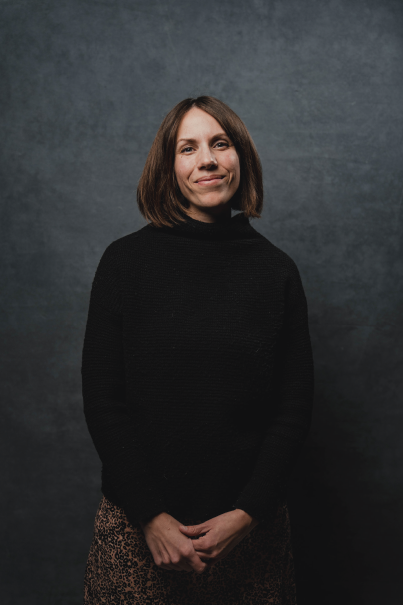
How do you recruit the next generation of scientists? Make the case for research? Build science literacy to guard against misinformation and denialism? Our science champions are equal to the challenge. They’re students, faculty and staff who all share a passion for engaging with the community one school visit, workshop, talk, tour and media interview at a time.
“There is no better way to connect people to science than through the craft of storytelling,” says Katie Moisse.
As a science journalist, Katie speaks from experience. Armed with a PhD in pathology and a journalism degree from Columbia University, she has mastered the art of communicating complex scientific knowledge to a general audience in a time of rising science denialism and misinformation.
Now, as an assistant professor of science communications at the Faculty of Science’s School of Interdisciplinary Science, Katie teaches classes in outreach and advocacy, basic communications and media relations to undergraduate students. She also serves as the School’s associate director of curriculum and pedagogy, and is spearheading development of a graduate program to meet rising employer demand for people with advanced media and communications skills.
“Some of these students will go on to become journalists, while others will work in knowledge translation roles within biotech companies or nonprofit organizations,” says Katie. “Being able to discover information and craft an argument for a target audience is a valuable skill in any path they pursue.”
Not long after joining the Faculty in 2018, Katie created the Science Stories Speaker Series. The series invites science journalists, filmmakers, photographers and artists to share their work with students and members of the wider Hamilton community.
“It’s never been more necessary or more challenging to engage folks with science,” she reflects. “The vision for this series is to help people feel like science is for them, not against them.”
Katie’s Science Stories series is one of many ways in which the Faculty is delivering on its strategic priority of transforming the world through communication and community engagement.
A dedicated group of 300 students comprises the McMaster chapter of Let’s Talk Science, a national organization that sends volunteers into schools and community centres to deliver learning presentations on science and technology.
Hamza Khattak, a graduate student in physics & astronomy, who coordinates outreach for the group, points to the value of doing, and not just telling students, about science. “I became a volunteer because I remember how much I enjoyed hands-on learning activities as a student,” he says.
It’s never been more necessary or more challenging to engage folks with science. The vision for this series is to help people feel like science is for them, not against them.
Throughout 2021, Hamza and his fellow volunteers adapted to pandemic lockdowns by offering virtual and hybrid events to students throughout Hamilton. Over time, they have designed activities that only use materials students can easily access at home. For example, a Let’s Talk Science volunteer may teach basic physics concepts to younger students by having them build catapults and bridges using popsicle sticks and rubber bands.
Volunteers may also leverage their own experiences during presentations. To explain his own ongoing research related to electromagnetics, Hamza recently delivered a presentation that involved microwaving grapes and watching them spark. “If students are having fun doing science, they’re less likely to be intimidated by it and more likely to think about careers in science and technology,” he says.
Other Faculty outreach programs are designed to engage specific audiences:
- Chemistry & Chemical Biology faculty and staff stage a Magic with Molecules Show for children and families, complete with flashes, bangs and chemical reactions.
- High school students expand their knowledge of neuroscience at events like the Canadian National Brain Bee and the Annual Hamilton Brain Bee, both hosted by the Department of Psychology, Neuroscience & Behaviour, and organized by professors Nikol Piskuric and Judith Shedden.
- And for equity-seeking students looking to build confidence and knowledge, a McMaster group called Promoting Inclusion in Physics and Astronomy led by instructional assistant Sara Cormier and graduate student Carmen Lee host an annual outreach event called Elevate: A Day for Inclusion in Science.
The lifting of pandemic restrictions means more opportunities to engage with the community. Physics and Astronomy professor Robert Cockcroft is eager to welcome back visitors of all ages to McMaster’s William J. McCallion Planetarium, the first in Ontario to offer public shows when it opened in 1950. Robert is also working with local Indigenous communities to develop an Indigenous astronomy course and Indigenous astronomy outreach program at McMaster.
The broad range of outreach activities offered by students and educators speaks to the boundless diversity of interests and passions across the Faculty of Science. From isolation to misinformation, the challenges of the COVID-19 pandemic have only reinforced the shared commitment to making science relevant and accessible to as many people as possible.
“Our world needs people who have the skills to bring science to life,” says Katie. “I’m thrilled to be part of a group of people at McMaster who are innovating in this space. There is endless opportunity to grow and explore.”

